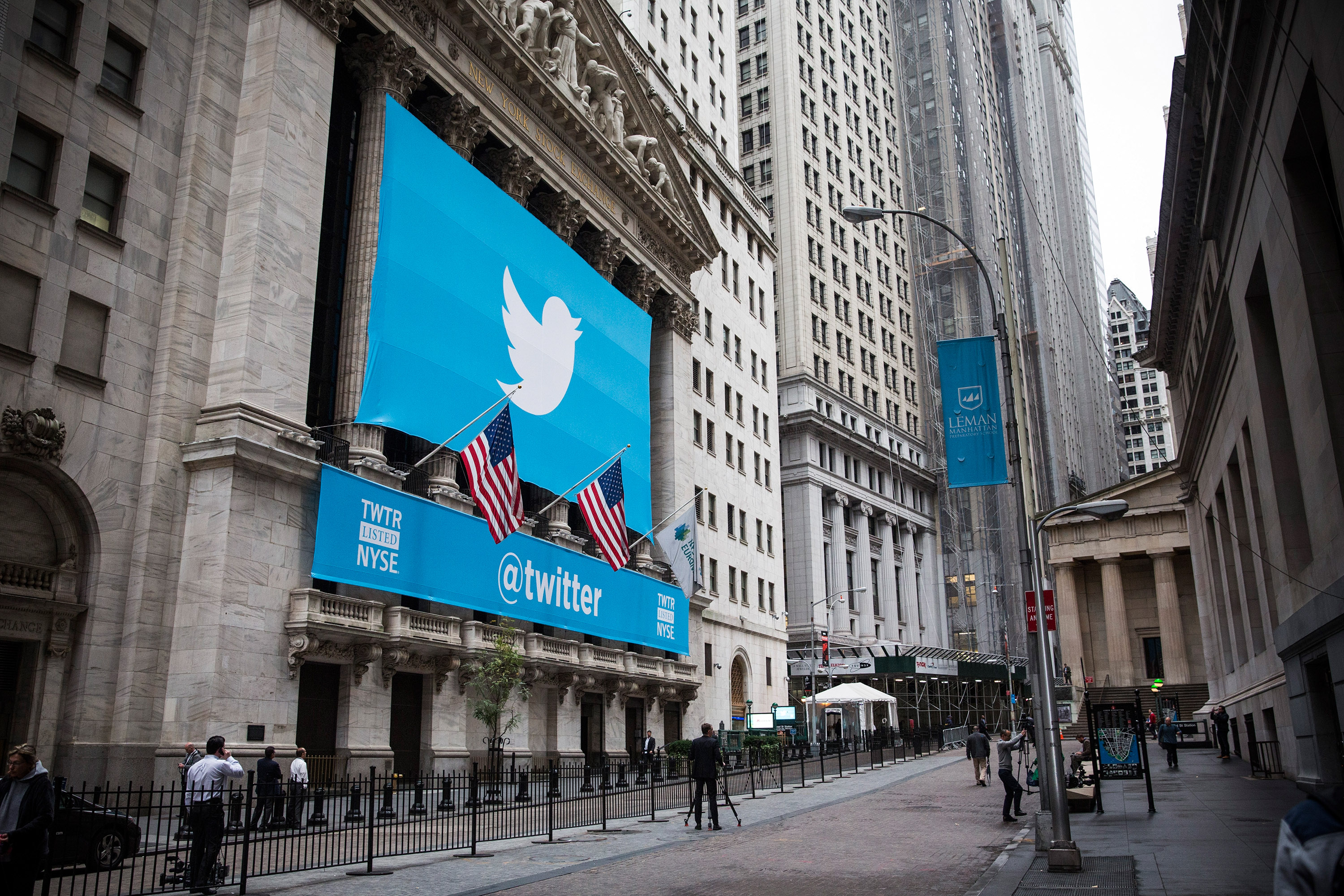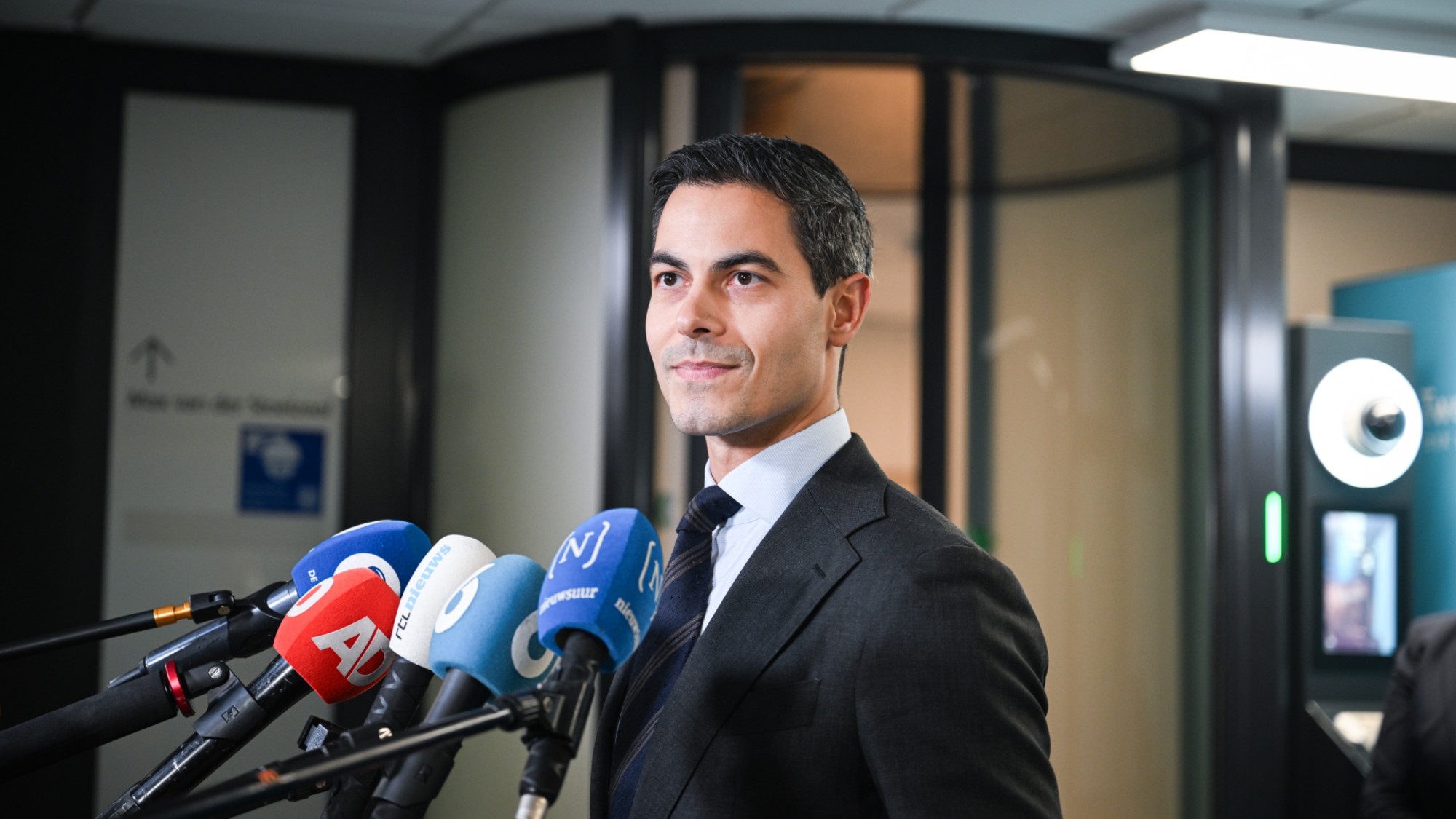How Wall Street is ruining Twitter
This is what happens when a company tries to appease the almighty stock market


Twitter may be in for a shakeup.
Interim CEO Jack Dorsey — who also founded the company — was on an earnings call this week, looking to assuage investors' worries. He laid out a series of planned changes to boost Twitter's traditionally slow user growth, including new algorithms to rank tweets in people's feeds by relevance instead of date and time, and using human editors to curate tweets on unfolding news events and trending topics.
As Slate's Will Oremus put it, this amounts to trying to turn Twitter into Facebook.
The Week
Escape your echo chamber. Get the facts behind the news, plus analysis from multiple perspectives.

Sign up for The Week's Free Newsletters
From our morning news briefing to a weekly Good News Newsletter, get the best of The Week delivered directly to your inbox.
From our morning news briefing to a weekly Good News Newsletter, get the best of The Week delivered directly to your inbox.
Objectively speaking, that's a strange business model to pursue. Twitter provides a service that's unique to Twitter, and about 300 million people use it. Facebook provides the service that is Facebook, and about 1.4 billion people use it. If Twitter starts trying to barge in on Facebook's turf, it will be abandoning the very service that made it successful, while trying to compete against a company that's absolutely crushing it in terms of user numbers.
Personally speaking, this sounds terrible. As a journalist, I'm a pretty devout Twitter user. The chronological organization of tweets is useful for following news stories and keeping track of discussions. (Twitter's recent decision to group or nest various replies within a conversation thread has already been a bit of a debacle in terms of my ability to follow a debate.) The system of hashtags and @-replies may throw ease-of-use barriers up for new entrants, but once mastered they turn Twitter into a unique tool. And like most tools, it's not for everyone. But the people it is for can find it extremely helpful.
Pissing off established users even more, in a bid to attract possible new users who never liked the service it provided in the first place, doesn't seem like a promising strategy.
So what's going on? Part of the issue is genuine problems in the business model. Twitter gets its revenue from advertisements, and it's actually been pretty successful at growing that revenue: up 61 percent over a year ago. But Twitter has never made a profit, and has operated at a net loss for pretty much the entirety of its nine-year history.
A free daily email with the biggest news stories of the day – and the best features from TheWeek.com
But the big issue is that in late 2013 Twitter went public, so the company now answers to shareholders. (Hence Dorsey's earnings call.) And those shareholders are not interested in merely making sure the money-going-in column matches the money-going-out column. They piled into Twitter expecting the next Facebook, and they want their payout. These investors see more users as a way to maximize revenue from targeted advertising.
Ironically, the gap between Twitter's revenue and its expenditures actually increased after the shareholders entered the picture. The company's spending on sales, marketing, research, and development all ticked up, probably in an effort to chase the growth shareholders wanted. Twitter also used stock compensation to attract and retain employees, and the company actually would have recently made a modest profit of $49 million if that stock compensation and certain other expenses had been excluded.
That doesn't prove that going public drove Twitter into the hole (who knows how things would've evolved without that stock compensation, for example), but it does show the way inserting shareholder interests into the equation can rejigger a company's business model. This is especially true today, when over two-thirds of the stock market is handled by institutional investors looking to maximize their clients' portfolios by moving different stocks around continuously. The word "investors" doesn't really mean individuals with personal as well as monetary stakes in a given company anymore. It means a kind of borg hive-mind with a perpetual hunger for big returns.
Back in June, Matt Yglesias wrote up his own business proposal for getting Twitter into the black: Improve the Twitter experience for top users, and charge a tiered fee for users with more followers — the ones who (like me) use the platform as an implicit form of advertising and self-promotion. In essence, this means embracing the nature of the non-Facebook service Twitter already provides, abandoning the pursuit of ever greater growth, and improving revenue by concentrating on existing users. "Save Twitter the service, not Twitter the wealth-maximization vehicle," as Yglesias put it.
This lays bare the problem: Twitter could probably easily get its finances in order, and survive indefinitely, if Twitter's shareholders were willing to accept a future in which their investment returns a modest flow of income — and in which the company's priority is successfully providing a socially useful service rather than maximizing their return.
But as a lot of people have noted — what with the glut of stock buybacks and Hillary Clinton's concerns with "quarterly capitalism" — is that we've entered an era in our economy where the "wealth maximization" drive is swallowing all other priorities. "True capitalists don't want to make steel or restaurant deals or jumbo jets or search engines," economist J.W. Mason wrote recently. "They want to make money."
The stock market gives capitalist their "exit" to liquidate those enterprises into cash.
Capitalism arguably functions pretty well as long as the doorway to that exit is kept narrow, allowing only a slow flow of money over time. That keeps the profit motive driving business enterprises yoked and harnessed to the goal of doing something that's actually socially useful.
A lot of policies we had mid-century did that. Strong unions and a high minimum wage forced firms to share more of their revenue with workers; regulations held corporate size and the flood of stock buybacks in check; corporate law had not yet allowed shareholders and management to essentially collude as raiding parties; and high corporate income and capital gains taxes made payouts to shareholders (or managers compensated in stock) much less attractive. These policies essentially dammed up the money flow, forcing shareholders to accept very modest returns, and forcing companies to plow revenue back into investment and jobs.
Since then, many of those policies and forces have deteriorated, and the harness has come undone. Which is arguably why you now see Twitter and other companies eating themselves for the sake of the almighty stock market.
Jeff Spross was the economics and business correspondent at TheWeek.com. He was previously a reporter at ThinkProgress.
-
 Rob Jetten: the centrist millennial set to be the Netherlands’ next prime minister
Rob Jetten: the centrist millennial set to be the Netherlands’ next prime ministerIn the Spotlight Jetten will also be the country’s first gay leader
-
 Codeword: November 4, 2025
Codeword: November 4, 2025The Week's daily codeword puzzle
-
 JD Vance wades into choppy religious waters about wife Usha
JD Vance wades into choppy religious waters about wife UshaTHE EXPLAINER By emphasizing his hope that the Second Lady convert to Christianity, the Vice President of the United States is inviting controversy from across the religious spectrum
